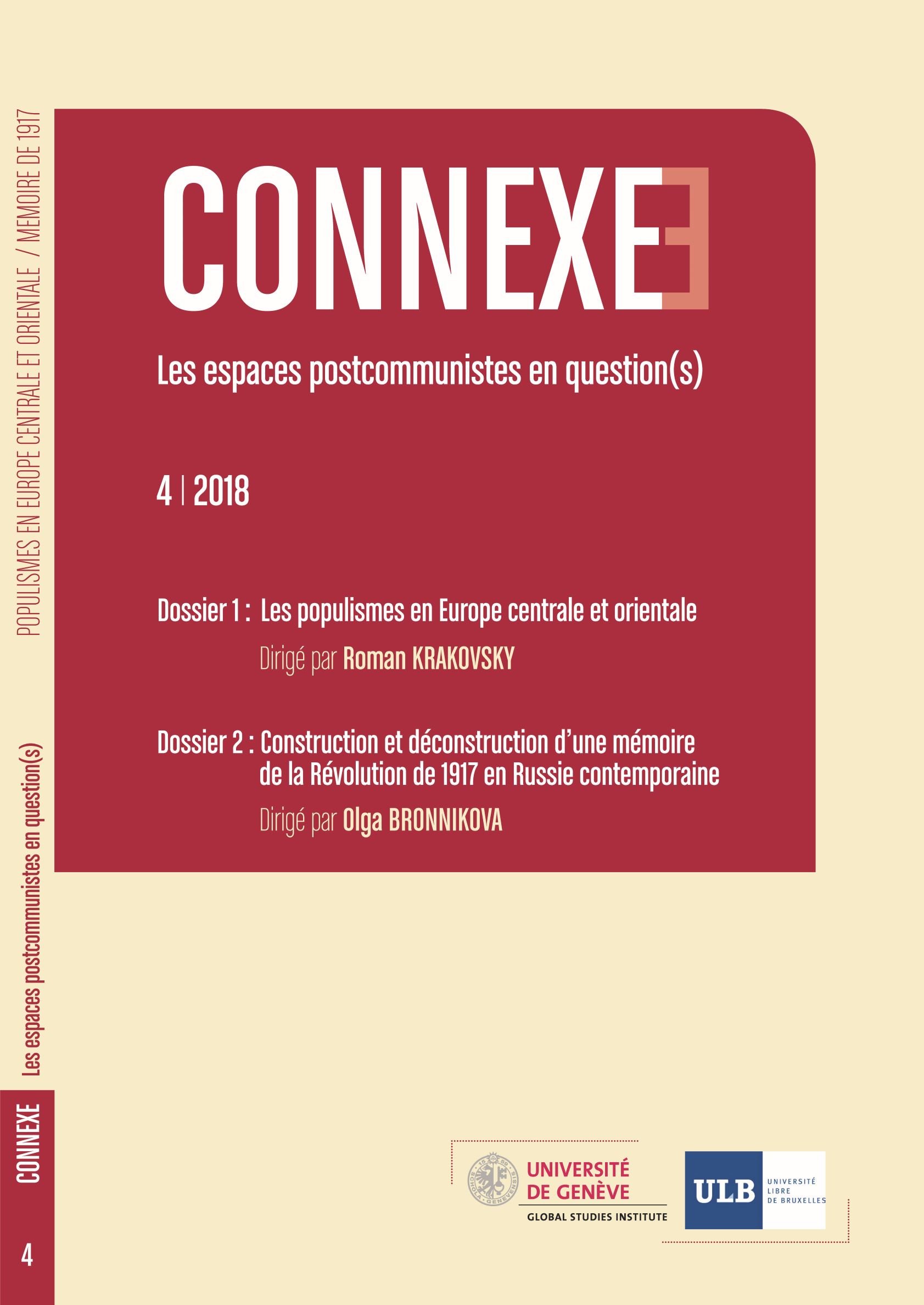The “Revolution” Paradigm in the Liberal Discourse of post-Soviet Russia
DOI:
https://doi.org/10.5077/journals/connexe.2018.e165Keywords:
revolution, reforms, liberalism, RussiaAbstract
In the early 1990s, the discourse of liberal reformers gives a very negative image of the Russian revolution of October 1917, described as a real national disaster. The entire Soviet experience is presented as a succession of wrong choices that have contributed to the consolidation of an inefficient political and economic system. This vision suits the reformers’ argumentation perfectly and helps to support their own political choices. All their decisions gain legitimacy through the necessity to do away with the inefficient Soviet communist institutions. From the early 2000s and in the context of authoritarian stabilization, the radical transformations of the late 20th century came under criticism and were often compared to those of the beginning of the century. The similarity between the utopian character of both the communist and liberal projects put forward in the public debate induces Russian liberals to rethink their experience and to ponder over the revolutionary potential of the liberal reforms. This article explores how the use of the “revolution” paradigm evolved in Russian liberal thought to define post-soviet reforms, from initial rejection to acceptance in a comparative perspective and by questioning its relevance.
References
Gajdar Egor, Čubajs Anatolij, Razvilki novejšej istorii Rossii [Les bifurcations de l’histoire contemporaine russe], Moscou : OGI, 2011.
Gajdar Egor, Vlast’ i sobstvennost’ : Smuty i instituty. Gosudarstvo i èvoljucija [Le pouvoir et la propriété : troubles et institutions. L’État et l’évolution], Saint-Pétersbourg : Norma, 2009.
Gajdar Egor, « Nam nužna skučnaja Rossiâ » [« Nous avons besoin d’une Russie ennuyeuse »], interviewé par Cunski Andrej, Dni.ru, 2005, https://iep.ru/en/publications/129/2925/category/page-586.html [consulté le 12.02.2013]
Gajdar Egor, Gosudarstvo i èvoljucija. Dni poraženij i pobed [L’État et l’évolution. Jours de défaites et de victoires], Moscou : Fond Evraziâ, 1997.
Karaganov Sergev, « “Global’nyj nol’” i zdravyj smysl » [Le zéro global et le bon sens], Rossija v global’noj politike, 2010, n°3, https://globalaffairs.ru/number/Globalnyi-nol-i-zdravyi-smysl-14881 [consulté le 15.01.2017]
Kljamkin Igor’, Meduševskij Andrej, Satarov Georgij, et al., « Dolgij rossijskij konstitucionnyj vek. Revolucija 1917 goda: social’nyj mif i logika razvitija političeskogo režima » [Un long siècle constitutionnel russe. La révolution de 1917 : mythe social et logique de l’évolution du régime politique], Fond liberal’naja missija, 2017, https://www.liberal.ru/articles/7180 [consulté le 17.10.2017]
Meduševskij Andrej, Politiceskaja istorija russkoj revoljucii : normy, instituty, formy social’noj mobilizacii v XX veke [L’histoire politique de la révolution russe : normes, institutions, formes de mobilisation sociale au XXe siècle], Moscou - Saint-Pétersbourg : Centr gumanitarnyh iniciativ, 2017.
Radvanyi Jean, Laruelle Marlène, La Russie : entre peurs et défis, Paris : Armand Colin, 2016.
Reddaway Peter, Glinski Dmitri, The Tragedy of Russia’s Reforms: Market Bolshevism Against Democracy, Washington D.C : US Institute of Peace Press, 2001.
Starodubrovskaja Irina, Mau Vladimir, Velikie revoljucii : ot Kromvelja do Putina [Les grandes révolutions de Cromwell à Poutine], Moscou : Vagrius, 2001.
Starodubrovskaja Irina, Mau Vladimir, Pavlovskij Gleb, Gajdar Egor, Kljamkin Igor’, « Revoljucija i postrevoljucija : stabilizacija, nestabil’nost’, Termidor ? » [La révolution et la post-révolution : stabilisation, instabilité, Thermidor ? lit.ru, 2001, https://www.polit.ru/documents/429488 [consulté le 17.06.2012]




